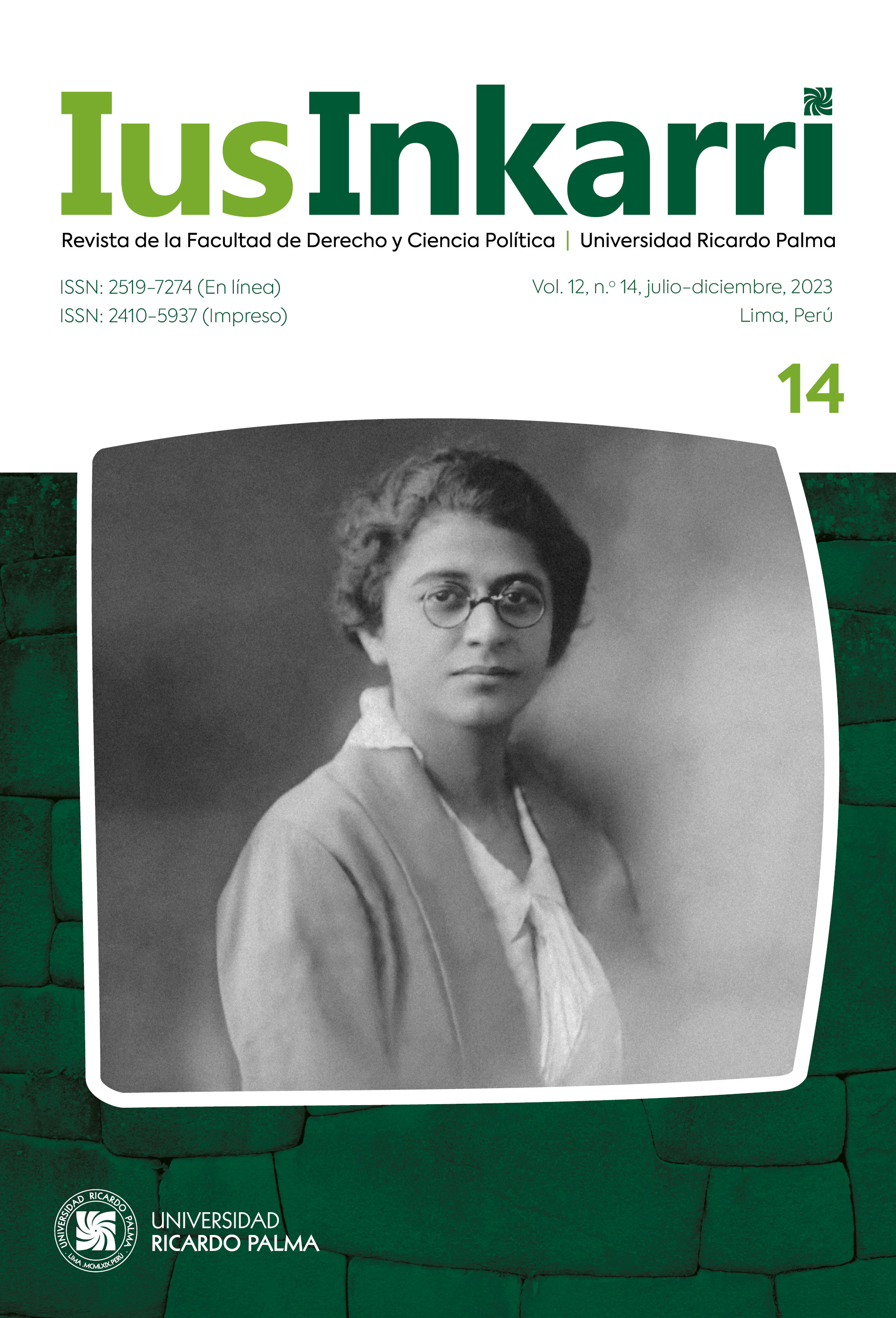Bioethics for the regulation of assisted reproduction techniques and gestational surrogacy in Mexico
DOI:
https://doi.org/10.59885/iusinkarri.2023.v12n14.03Keywords:
assisted reproduction techniques, surrogacy, bioethics, sexual and reproductive rightsAbstract
Reproductive techniques allow people to realise their desire to become parents; however, these techniques are expensive and the biological material of other humans is needed to fulfil this desire. This generates several situations: biocapitalism, the mercantilisation and instrumentalisation of the body and socio-economic gaps; it also implies the exercise and possible violation of reproductive rights, the right to identity (which includes the right to a name, filiation, knowledge of biological origin and nationality), the right to privacy, the right to family unity, among others. On the other hand, in some cases of surrogacy, the pregnant women become attached to the child, who is taken from their arms because there is a prior agreement. In other cases, the children are born with pathologies and the contracting partners do not want them; then, as the agreement has no legal framework, the children are left in a state of defencelessness. In all these cases there are ethical-legal implications that need to be addressed. This article aims to reflect on the need for bioethics to adequately regulate assisted reproduction techniques and surrogate management, based on the analysis of real cases such as the twins with hydrocephalus who were abandoned or the child who was born with the help of three parents in Mexico; we will also look at the legislation of other countries, such as England, to suggest the ethical-legal dilemmas that may arise and their possible solution.
Downloads
References
American Academy of Pediatrics. (2017, septiembre). Guidelines for Perinatal Care. https://publications.aap.org/aapbooks/book/522/Guidelines-for-Perinatal-Care?autologincheck=redirected
Camhaji, E. (2016, 8 de noviembre). Los vacíos legales en México sobre reproducción asistida. El País. https://elpais.com/internacional/2016/10/06/mexico/1475720684_972480.html
CNN en Español. (2013, 5 de marzo). Ofrecen 10 mil dólares a madre de alquiler para que aborte tras saber problemas del bebé. CNN. https://cnnespanol.cnn.com/2013/03/05/ofrecen-10-mil-dolaresa-madre-de-alquiler-para-que-aborte-tras-saber-problemas-delbebe/
Código Civil para el Distrito Federal. (2021 [1928]). https://www.congresocdmx.gob.mx/media/documentos/ad63a5bd2aef33e50ef1ed68d82450cf368578c0.pdf
De la Fuente, P. y Salvador, Z. (2018, 19 de julio). Reducción de embriones o fetos en el embarazo múltiple. Reproducción Asistida ORG. https://www.reproduccionasistida.org/reduccion-de-embriones/
González, F., Guerrero, S., Hernández, P., Holgado, L., Ingelmo, L., Justo, L., Lázaro, D., López, N., Lucas, C., Martín, T., Mateos, I. y Mateos, A. (2021). TEDH y gestación por sustitución [Trabajo, Universidad de Salamanca]. https://gredos.usal.es/bitstream/handle/10366/145480/Seminario%20wiki%20definitivo%20TEDH%20y%20GS.pdf?sequence=1&isAllowed=y
Ley General de Salud. (2023 [1984]). https://www.diputados.gob.mx/LeyesBiblio/pdf/LGS.pdf
Organización Mundial de la Salud (2010 [2009]). Glosario de terminología en Técnicas de Reproducción Asistida (TRA). Versión revisada y preparada por el International Committee for Monitoring Assisted Reproductive Technology (ICMART) y la Organización Mundial de la Salud (OMS). Red Latinoamericana de Reproducción Asistida.
Ruiz Macías, H. (2019, marzo). Recomendaciones bioéticas en el manejo de límite de esfuerzo terapéutico en neonatología [Tesis de maestría, Universidad Panamericana]. Scripta. https://scripta.up.edu.mx/bitstream/handle/20.500.12552/5420/198897.pdf?sequence=1&isAllowed=y
Salas, J. (2016, 5 de octubre). Nace un bebé con la nueva técnica de «tres padres genéticos». El País. https://elpais.com/elpais/2016/09/27/ciencia/1474989059_678680.html
Serrano, M. (2022). El acceso en igualdad a las técnicas de reproducción médicamente asistida: carencias legislativas y gestación por sustitución. Ius et Scientia. Revista Electrónica de Derecho y Ciencia, 8(2), 122-135. https://revistascientificas.us.es/index.php/ies/article/view/22247/20105
Suprema Corte de Justicia de la Nación. (2018a). Tesis relevantes de la Primera Sala de la Suprema Corte de Justicia de la Nación, publicadas en el Semanario Judicial de la Federación del 22 de junio al 6 de julio de 2018. https://www.supremacorte.gob.mx/sites/default/files/comunicacion_digital/2018-07/TesisPrimeraSaladel22dejunioal6dejulio2018.pdf
Suprema Corte de Justicia de la Nación. (2018b, 21 de noviembre). Amparo en revisión 553/2018. https://www.scjn.gob.mx/sites/default/files/listas/documento_dos/2018-10/AR-553-2018-181022.pdf
Torres Quiroga, M. Á. (2020). Maternidad y gestación en venta. Fabricar bebés en la era neoliberal. Edicions de la Universitat de Barcelona.
Downloads
Published
How to Cite
Issue
Section
License
Copyright (c) 2023 Aida del Carmen San Vicente Parada

This work is licensed under a Creative Commons Attribution 4.0 International License.













